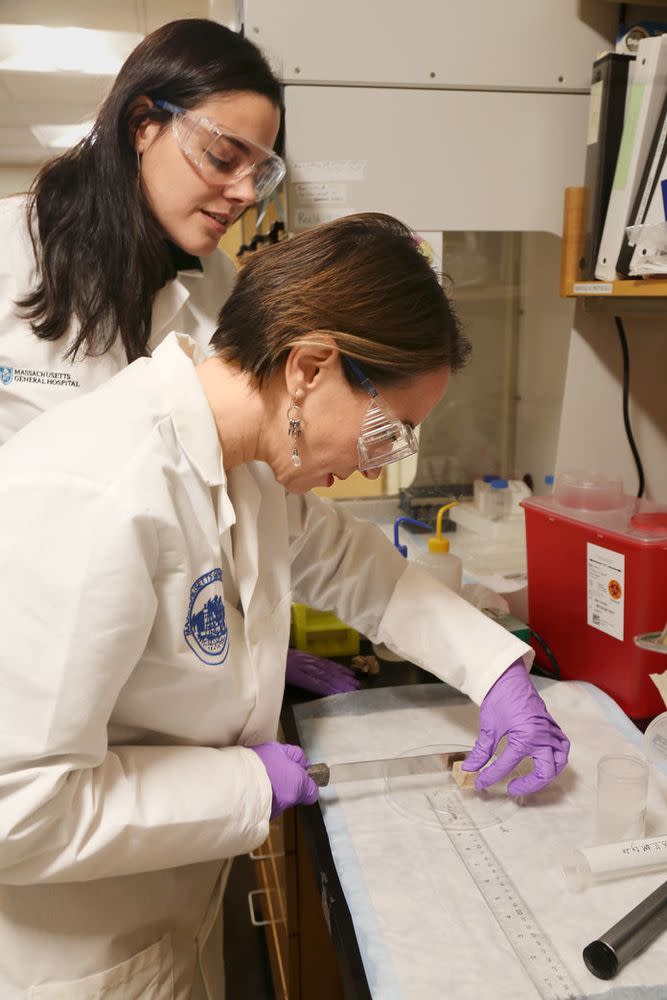This Badass Researcher Is Using Brain-Mapping to Improve Anxiety and Depression Treatment for Teens
Badass Women spotlights women who not only have a voice but defy the irrelevant preconceptions of gender. (Not to mention, they are exceptionally cool.) Here, Researcher Anastasia Yendiki talks about her work mapping brain matter to help better treat anxiety and depression in teens.
Why she’s a badass: Dr. Yendiki developed a brain-mapping tool called TRACULA that helps decipher white-matter pathways in brain scans, which can be used to study various diseases. Now, in conjunction with the Boston Adolescent Neuroimaging of Depression and Anxiety project, she’s leading the charge at Massachusetts General Hospital to analyze brain scans of teens with anxiety and depression. Her algorithms aim to make it easier to diagnose and treat patients.
In 2017, Dr. Yendiki’s efforts landed her a spot on Fast Company’s Most Creative People list.

Success on the brain: Born in Greece, Dr. Yendiki studied electrical engineering in her home country before continuing her education at the University of Michigan, where she earned a Ph.D. in 2005. “When I was younger, I was told that I wasn’t
expected to [enter a STEM field] because I was a woman,” she says. “That made me all the more determined to succeed.”

RELATED: Badass Women: Laura Dern Interviews Boundary-Breaking MIT Scientist Neri Oxman
Facing obstacles: “Less than a decade ago, I was able to overcome depression myself,” Dr. Yendiki says. “If I hadn’t, then all my other accomplishments wouldn’t have happened.” Her personal connection to the disease keeps her motivated. “We don’t get instant gratification in our work,” she says. “You have to keep thinking about that end goal even though it could be 10 years away.”
Whom she admires: The suffragettes (the OG badass women), who fought for a voice when it wasn’t as easy to speak out. “Whenever something seems challenging, I think about what they had to deal with, and that keeps me going.”

Dance break: When work gets frustrating, Dr. Yendiki turns to flamenco dancing as a release. “I think it’s good to give yourself some distance from your work and then come back to it.”
What’s next: Dr. Yendiki, also an assistant professor of radiology at Harvard Medical School, is updating TRACULA and continuing to blaze a trail in the world of white-matter image analysis. “I know that I won’t solve all the brain’s mysteries, but if I can solve a tiny piece of one, that would be amazing.”
For more stories like this, pick up the January issue of InStyle, available on newsstands and for digital download Dec. 8.

